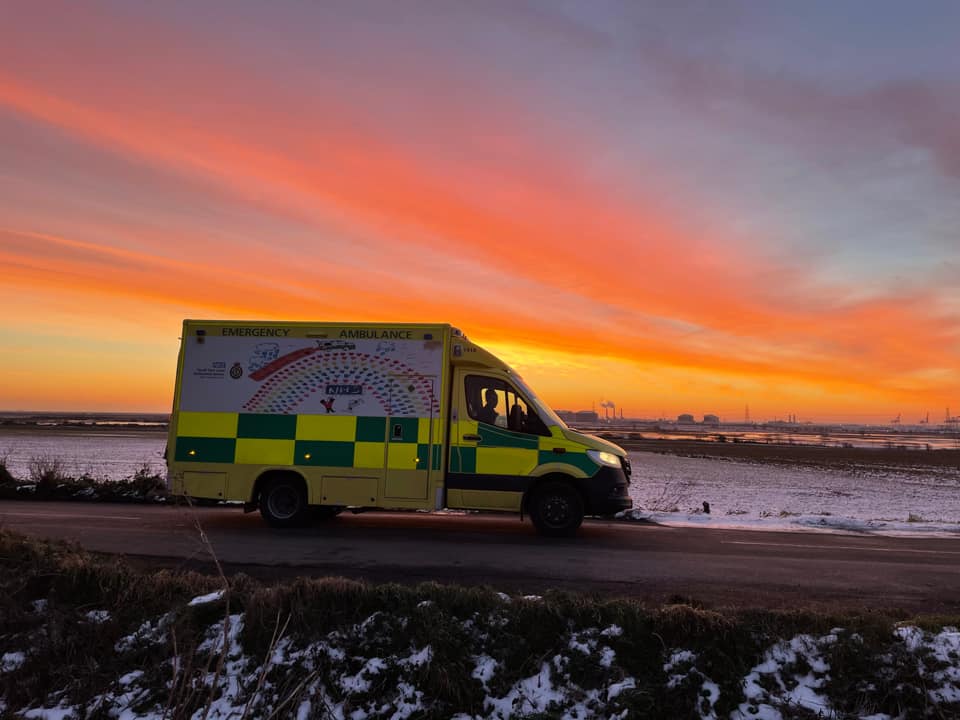
With the clocks having turned back and with daylight quickly fading, South East Coast Ambulance Service (SECAmb) is asking for the public’s support this winter.
People are reminded of the importance of making use of alternatives to calling 999 when not facing and emergency and to plan ahead for the colder months.
While pressure on the ambulance service remains high all year round, the winter months can bring additional challenges, including an increase in calls reporting slips and falls and for patients with existing conditions, such as respiratory problems, which can worsen in colder temperatures.
Simple steps can make a big difference and help reduce demand.
- check medicines cabinets contain useful, in-date medication
- ensure repeat prescriptions are ordered and collected on time
- check on vulnerable family and friends
- seek advice on health issues ahead of them becoming more pressing
November 2024 saw the Trust’s 999 Emergency Operations Centre teams handle more than 82,000 calls to 999. The following month, (December 2024), call volume increased by a further 8,000 calls to close to 90,000. Particularly busy days will see teams manage in excess of 3,000 calls a day – that’s more than two 999 calls every minute.
SECAmb’s NHS 111 teams are also expected to see demand increase in the coming weeks as they provide advice and arrange follow up care for patients. Calls are anticipated to reach up to 5,000 at weekends and to reach as high as 8,000 on peak days over Christmas and New Year.
Teams will be working hard closely with local NHS system partners to ensure patients receive the right response first time.
SECAmb’s Unscheduled Care Navigation Hubs are operating across its region. The multi-discipline hubs see SECAmb’s highly-skilled clinicians joined by specialist teams from across the local healthcare system to ensure 999 calls are receiving the most appropriate response.
The hubs complement SECAmb’s existing urgent care hubs, through which the Trust’s Advance Paramedic Practitioners, (APPs), provide support and advice to ambulance crews.
In addition to ensuring patients receive the most appropriate response, they also aim to reduce the number of patients being taken to emergency departments.
SECAmb Chief Operating Officer, Jen Allan said: “With the clocks having turned back and colder months fast approaching, we’re asking for the public’s support to prepare for winter.
“In an emergency, our colleagues, including our many dedicated volunteers, will be there for people and I’m extremely proud of the care they provide.
“But we need our phone lines to be as available as possible and the public can really help us be there for those facing an emergency by making use of alternatives to calling 999 where appropriate.
“Alternatives include seeking help or advice from a GP or local pharmacist or via our dedicated teams in NHS 111.
“In addition, preparing for winter by taking small steps such as checking medicine cabinets are correctly stocked and collecting repeat prescriptions in plenty of time can make all the difference.
“I would like to thank each and every member of staff, across so many vital frontline and support roles as well as all our volunteers for the commitment and care they provide as we prioritise our response to our most seriously ill and injured patients.”
SECAmb has a winter check list to help people prepare for the colder months:
- Check your home medicines cabinet – is everything in date? Restock with essentials including cold remedies, pain killers, indigestion tablets and diarrhoea and constipation remedies
- Keep up to date with any repeat prescriptions you or your family or friends need – especially ahead of weekends and bank holidays
- Take up the opportunity for flu and Covid vaccinations when offered to protect yourself and others.
- Look out for any vulnerable family or friends – is there anything you can do to help them?
- We attend falls to older and vulnerable people all year round – Are there any hazards in their homes? Do their slippers need replacing?
- Wear appropriate shoes when outside especially during icy weather. We typically see an increase in slips and trips during colder spells
- Heat homes to at least 18C (65F). You might prefer your main living room to be slightly warmer
- Keep your bedroom at 18C all night if you can – and reduce drafts – if you’re under 65, healthy and active, you can safely have your home cooler than 18C, as long as you’re comfortable
- Keep active when you’re indoors. Try not to sit still for more than an hour or so
- Wear several layers of light clothes. They trap warm air better than one bulky layer
- When was the last time your vehicle was serviced? If your car is safer, so are you
- Carry some useful items in your vehicles such as a blanket and a spade for colder and possible snowy weather
- Wear bright colours at night. Can you be clearly seen as a pedestrian or cyclist? If walking at dusk or at night use a torch
- Only call 999 in the event of a life-threatening or serious emergency
- People who are not facing a serious emergency should make alternative arrangements such seeking advice from a GP or pharmacist so we can focus on those who need us most.
- If its urgent but not an emergency, you can call NHS 111 or seek advice from 111 online at 111.nhs.uk
For further advice on how to prepare for winter visit: https://www.secamb.nhs.uk/winter-preparedness/
